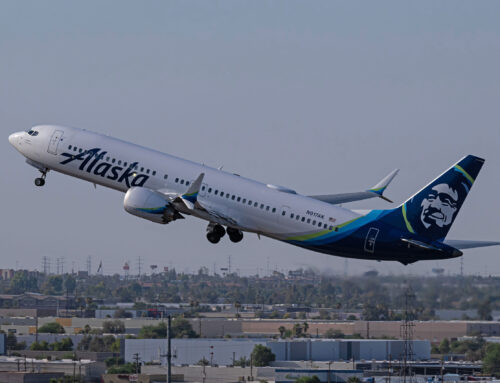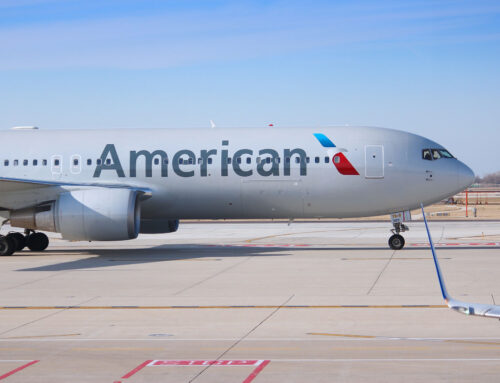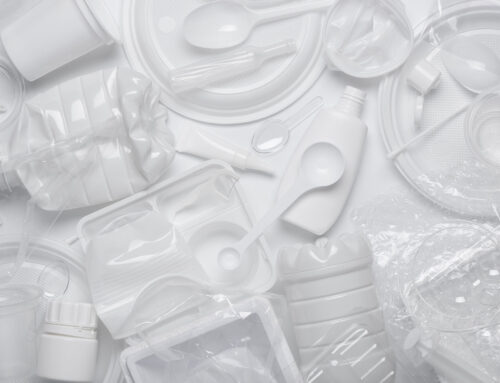Remy Garson, CEO of Remcoda, brings his expertise in global logistics to Forbes with monthly articles on industry insights.
As environmental concerns reach a critical point, industries across the globe are taking measures to increase sustainability initiatives and reduce pollution. The food service industry, which has long relied on single-use plastics and foam products, has emerged as a major player in this transition toward compostable and biodegradable sustainable alternatives.
Consumer demand for cheaper products drives the production of plastic, which is predominantly derived from inexpensive materials like polystyrene and polypropylene. Despite its convenience, plastic has a significant environmental cost; it is non-biodegradable and can take hundreds of years to decompose, causing harmful effects on wildlife and their habitats. According to OPDERA, plastic products are responsible for the deaths of over 100,000 marine animals and 1 million seabirds annually
Foam products like cups and to-go containers are often cheaper than plastic, but they pose a greater environmental risk. Foam is non-recyclable and made from expanded polystyrene, which can leach harmful chemicals into the environment and pollute water sources. Moreover, the manufacturing of polystyrene creates hazardous waste and significantly contributes to global warming.
The rise of the environmentally-conscious consumer is having a positive impact on the food service industry. According to a KerryDigest study, “58% of consumers in North America say they are strongly influenced by sustainability when making a food or beverage purchase at a restaurant.” Eco-friendly cutlery, flatware, cups and to-go containers are typically made from renewable or biodegradable materials like molded fiber, bamboo, cornstarch or recycled paper. Although these materials are often more expensive than plastic and foam, they can be composted or recycled at the end of their useful life, making them a more sustainable option.
Although the food service industry is making strides toward sustainable packaging and environmental awareness, the cost of going green presents a significant obstacle. Sustainable packaging often requires more advanced processes and expensive raw materials, resulting in higher price tags. According to a study by Raconteur (via Wipak), 43% of brands cite cost as the primary factor hindering a switch to biodegradable packaging.
Despite this, a number of quick-service restaurants that focus on healthy food and environmentally friendly packaging such as Sweetgreen, CAVA Grill and Dig Inn are emerging. In fact, with 58% of consumers influenced by sustainability in food service, embracing compostable alternatives to single-use plastic and foam presents an opportunity for restaurateurs to earn a return on investment.
As a CEO in the logistics and manufacturing industry with a passion for sustainability, I have witnessed the rapid growth of the sustainable and compostable market. This transition is not limited to one country or region but is a global effort, marked by the implementation of new laws and regulations aimed at reducing usage and waste.
For example, New York City’s “Skip the Stuff” bill prohibits restaurants from automatically including single-use plastic cutlery in takeout orders. Instead, customers must request them. St. Paul, Minnesota, has also implemented a sustainability-focused ordinance called “Green To Go” to reduce plastic waste generated by restaurants and other food service establishments.
California has introduced new regulations under CalRecycle that restrict the use of perfluoroalkyl and polyfluoroalkyl substances (PFAS)—synthetic chemicals linked to health issues such as cancer, liver toxicity and reproductive issues. Since PFAS is commonly found in plastic foodservice packaging, the new rule limits total fluoride concentration to less than 100 parts per million.
Sustainability efforts are not limited to the government; they are also being undertaken by individual food service brands. Chipotle, for example, has made significant strides toward sustainable packaging. According to Electrek, “100% of Chipotle’s burrito bowls, bags, napkins, kids tray meals and quesadilla trays were made entirely from compostable natural fiber materials” in 2022. Additionally, its paper cups are now certified by the Sustainable Forestry Initiative (SFI). These initiatives have resulted in 49% of its waste being diverted from landfills.
Just Salad, a chain with locations in six U.S. states and Dubai, has also implemented a Reusable Bowl program. For just $1, customers can purchase a reusable bowl to use for their salad or warm bowl, and every time they use it, they get a free topping as a reward. This initiative has been a resounding success, with Just Salad achieving 133% year-over-year reusable bowl usage and diverting 75,000 pounds of single-use plastics away from landfills under its Green Standard Initiative.
Even fast-food giant McDonald’s is joining the sustainability movement, setting an ambitious goal to transition from single-use plastic and foam to 100% sustainable alternatives by 2025. As someone who has dealt with the company firsthand, I can attest to its commitment to making a positive impact on the environment.
The shift toward sustainability is impacting not only restaurants and food service brands but also their large-scale distributors. Global distributor Performance Food Group (PFG) has implemented several strategies to reduce its environmental impact, including contracting our company to produce a line of compostable and PFAS-free food service products under its First Mark brand. PFG has also committed to reducing its carbon footprint by 30% by 2030, a goal that other food service distributors are also working toward.
Consumers have the power to drive change by supporting companies committed to sustainable practices, and they are choosing to spend their money on sustainable products and solutions. This will increase the demand for these options and encourage the market to transition toward more sustainable practices. This change is long overdue and will have a positive impact on the environment and communities around the world for generations to come.
Forbes Business Council is the foremost growth and networking organization for business owners and leaders. Do I qualify?







